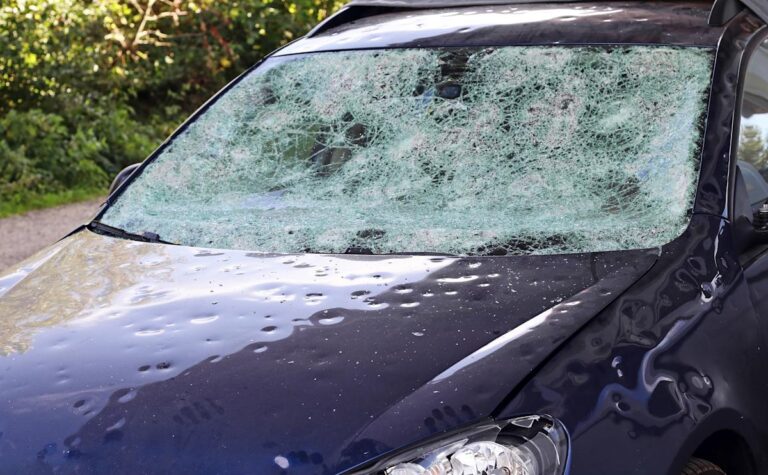
One car per household: Spain’s tough new rule could soon hit more regions. Fines up to €30,000 if you break the rule.Credit: No-Mad, Shutterstock
The sun-soaked streets of Spain may soon have a lot more room for you… but a lot less room for your second car. In a move that’s got locals, tourists, and businesses up in arms, Mallorca is preparing to roll out a bombshell new law: one car per household. Full stop. Will this new law soon trickle into other congested areas like the Costa del Sol, Madrid, or Barcelona? Is it the start of a nationwide rollout? Read on to find out what we know so far.
The controversial crackdown, backed by the Consell de Mallorca, is being pitched as a desperate attempt to unclog the island’s choked roads. According to Spain’s traffic chief Pere Navarro, who threw fuel on the fire recently, “The future of mobility will be shared or it won’t be.” Navarro pointed to grim statistics: 85% of cars in Spain’s biggest cities carry just one lonely driver.
But this is no longer just about congested Madrid or Barcelona. Mallorca, along with its Balearic sisters Ibiza and Formentera, has found itself gridlocked not just by locals, but by waves of tourists pouring in every summer. In fact, over 400,000 vehicles are now arriving by ferry each year — a jaw-dropping 110% increase in the past six or seven years.
Ibiza and Formentera have already started charging tourists €1 per day just to bring their cars ashore, but Mallorca is now raising the stakes. The draft law proposes new entry fees of €50 to €85 for cars shipped from mainland Spain — and that’s just the beginning.
The headline-grabber? Non-resident homeowners will only be allowed to register one vehicle to their address. Break the rules? You could be slapped with fines of up to €30,000. Yes, thirty thousand.
Predictably, the move has sent the car rental industry into full meltdown. FENEVAL, Spain’s national car rental federation, is fuming. ‘This is discriminatory against our business model,’ blasted Juan Luis Barahona, FENEVAL’s executive president, adding that the rental fleet is already the cleanest on the roads with an average vehicle age of just 2.2 years, compared to a rusty 14.5 years for private cars. ‘Half of our vehicles qualify as ECO,’ he added, implying that targeting rentals makes little environmental sense.
Barahona didn’t stop there: ‘This threatens freedom of movement in Spain and could cause serious economic damage.’ He warned that authorities may have to cough up compensation for businesses hurt by what he calls an ill-thought-out policy.
And the watchdogs are circling. Spain’s National Markets and Competition Commission (CNMC) is already probing similar restrictions in Ibiza, raising questions about whether Mallorca’s copycat plan could face legal challenges.
Could this new law soon be applied to other traffic-clogged areas such as the Costa del Sol, Madrid, or Barcelona?
Let’s not kid ourselves — the idea is already being watched like a hawk. Madrid and Barcelona have been battling congestion for years, and the Costa del Sol chokes every summer under rental cars, tourists and second-home owners. If Mallorca’s experiment proves it can tame the traffic beast (without triggering legal mayhem or economic backlash), you can bet local councils elsewhere will be eyeing similar measures. Politicians love a ‘climate-friendly, sustainable mobility solution’ — especially one that raises fresh tax revenue. But right now, we’re still in the laboratory phase. Mallorca is the guinea pig.
Is it the start of a nationwide rollout?
Not officially. Yet. The central government hasn’t laid its cards on the table. But watch the language: DGT boss Pere Navarro is already framing the debate with phrases like “shared mobility or nothing.” That’s not casual small talk — that’s strategic signalling. If Mallorca’s law sticks — and survives court challenges — it could quietly become the blueprint for Spain’s next chapter in traffic control. Nationwide rollout? Too early to say. But a slow creep? That’s how these things usually start.
So is this the beginning of the end for the car-clogged chaos on Spain’s roads? Or just another red tape headache? Time will tell.
If you’re planning to park your Range Rover outside your holiday villa next summer, you might want to double-check the fine print. Or risk paying a fine so big it could buy you a new one.
Get more original motoring news.
More news about living in Spain.



![Sunday is the last day to take advantage of the Chase refinance mortgage rate sale [Expired]](https://thenewsblend.com/wp-content/uploads/2025/12/eed000a0-caf6-11f0-baaf-499d9d48b516-768x512.jpg)


